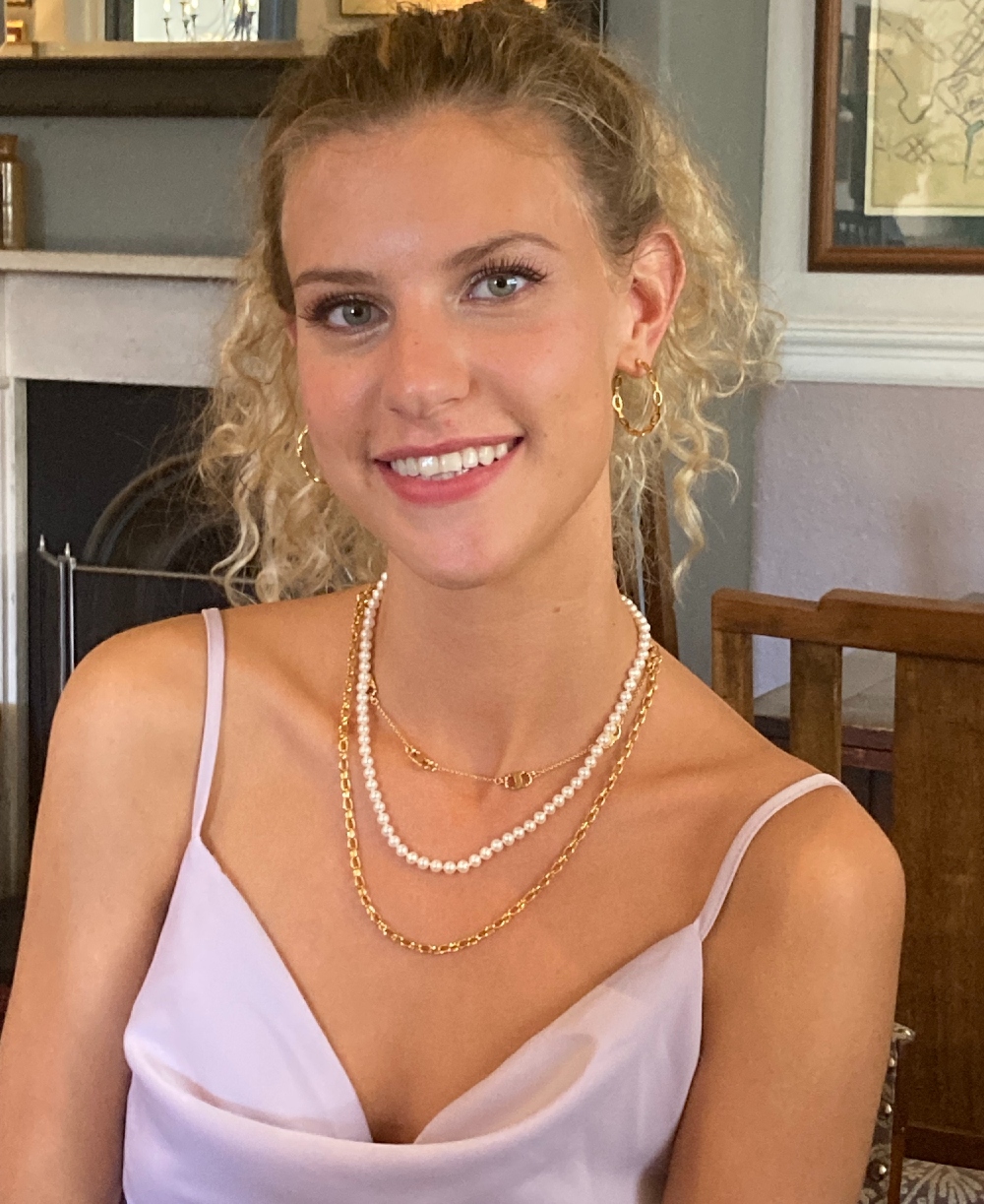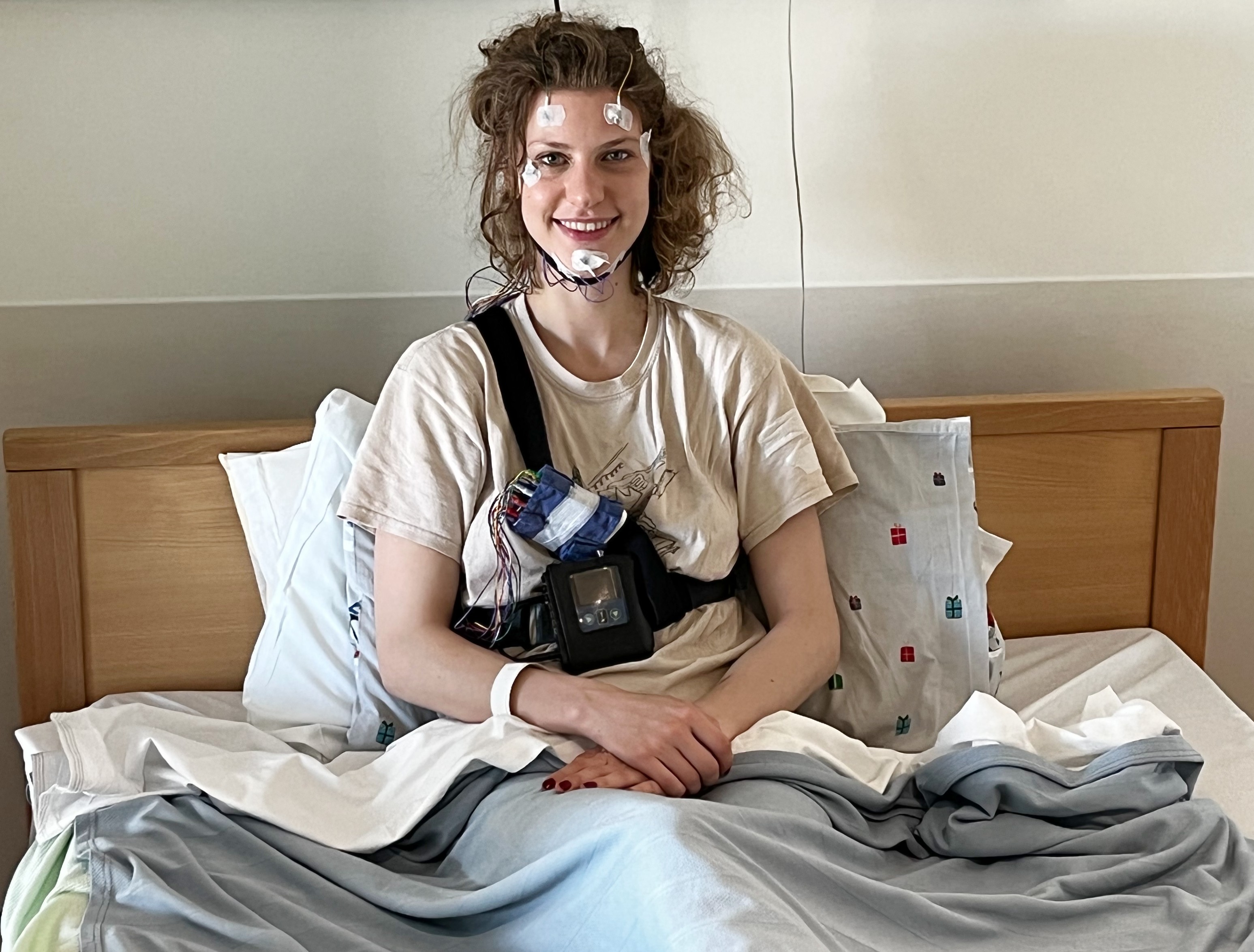Helena, 23, has suffered from poor sleep health since she was 12 years-old.
She was diagnosed with idiopathic hypersomnia and regularly visits Royal Papworth Hospital for sleep investigations.
She shares her experiences of sleep health for World Sleep Day 2022; the theme this year is ‘quality sleep, sound mind, happy world’.

Helena's story
I remember being tired all the time when I was about 12, no matter how much sleep I got or how long I slept for.
I went to my GP a few times and ended up being diagnosed with a rare condition called idiopathic hypersomnia. The main symptom is that I feel excessively sleepy in the day, no matter how much sleep I get at night or how long I sleep for. This is hypersomnia. Idiopathic means we do not know the underlying cause, so the condition cannot be treated but can be managed through medication.
I have to nap every day, and 20 minutes or half an hour is not enough. It needs to be two or three hours at a time.
This isn’t quite narcolepsy, because I don’t just fall asleep instantly, it’s almost like the next step down because I can get myself up to bed when I feel sleepy for example.
I would miss school, have to cancel social events and even fell asleep during an A-Level exam. I had to plan my whole life around sleep and pick between academia and friends. I can’t tell you how much I missed out on as a teenager; I have lost so many years to sleep.
I have an insatiable appetite for sleep and while some people can just perk themselves up with a coffee or some caffeine, that doesn’t work for me. It sounds pathetic saying ‘sorry I can’t come to this event or that event because I need a nap’.

Helena after conducting an overnight sleep investigation called polysomnography in our sleep lab.
My GP referred me to Royal Papworth Hospital back in 2015 when I was 16 and in my first year of college.
They conducted a sleep investigation called polysomnography (PSG). This involves monitoring equipment being attached to my face and head and it monitors my sleep overnight and the quality of it.
I am then given medication which helps to alleviate my symptoms and although it has not entirely removed the problem (this goes back to it being idiopathic and not knowing what causes it), my quality of life is much better and I am able to get on with life having had a much more ‘normal’ level of sleep.
I am writing this on World Sleep Day from the sleep lab at the hospital, having been in for my latest PSG overnight.
I think I slept about eight hours last night, but I suspect actually only three of four hours of proper sleep as I’m sure I woke up a few times.
During my stay I will also be having multiple, daytime sleep latency tests where the team will monitor how quickly I go to sleep, for how long and how deeply I sleep, before being discharged in the afternoon.
All this information will check if the drug I am currently in is still the most effective one, or if I can be prescribed something else.
I’ve been working part-time recently but am soon starting a full-time job, which I am really excited about but also quite nervous. I hope my need for sleep doesn’t get in the way but it does represent progress that I am even able to consider this as an option.
My advice to people is that sleep health needs to be taken seriously. It should be just as important as eating the right food, not drinking too much alcohol, not smoking and getting physical exercise.
Some of the advice that has worked for me has been about improving sleep hygiene, and in particular getting into a proper routine by going to bed and waking up at the same times each day.
Happy World Sleep Day!
